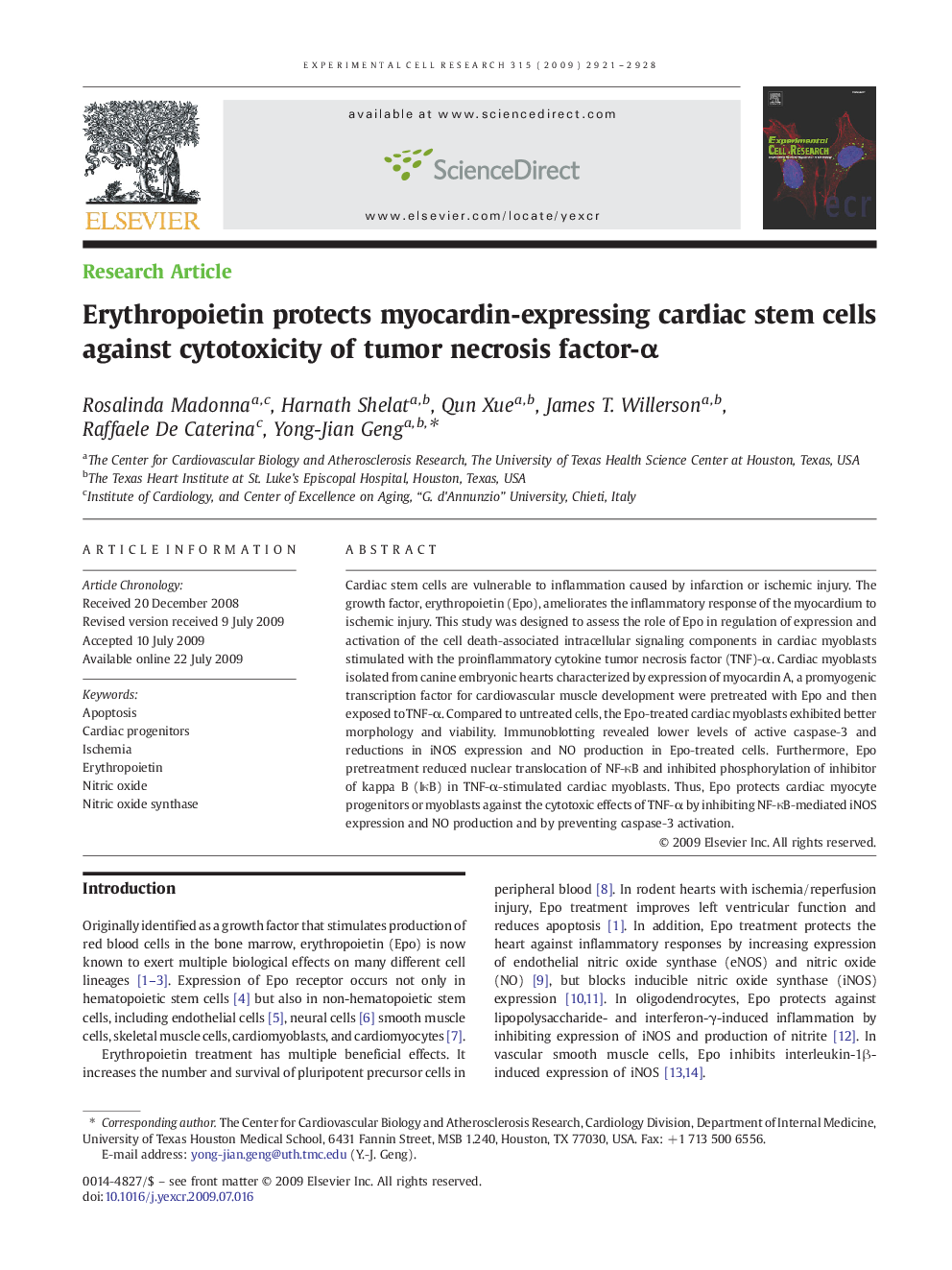| Article ID | Journal | Published Year | Pages | File Type |
|---|---|---|---|---|
| 2132357 | Experimental Cell Research | 2009 | 8 Pages |
Cardiac stem cells are vulnerable to inflammation caused by infarction or ischemic injury. The growth factor, erythropoietin (Epo), ameliorates the inflammatory response of the myocardium to ischemic injury. This study was designed to assess the role of Epo in regulation of expression and activation of the cell death-associated intracellular signaling components in cardiac myoblasts stimulated with the proinflammatory cytokine tumor necrosis factor (TNF)-α. Cardiac myoblasts isolated from canine embryonic hearts characterized by expression of myocardin A, a promyogenic transcription factor for cardiovascular muscle development were pretreated with Epo and then exposed to TNF-α. Compared to untreated cells, the Epo-treated cardiac myoblasts exhibited better morphology and viability. Immunoblotting revealed lower levels of active caspase-3 and reductions in iNOS expression and NO production in Epo-treated cells. Furthermore, Epo pretreatment reduced nuclear translocation of NF-κB and inhibited phosphorylation of inhibitor of kappa B (IκB) in TNF-α-stimulated cardiac myoblasts. Thus, Epo protects cardiac myocyte progenitors or myoblasts against the cytotoxic effects of TNF-α by inhibiting NF-κB-mediated iNOS expression and NO production and by preventing caspase-3 activation.
